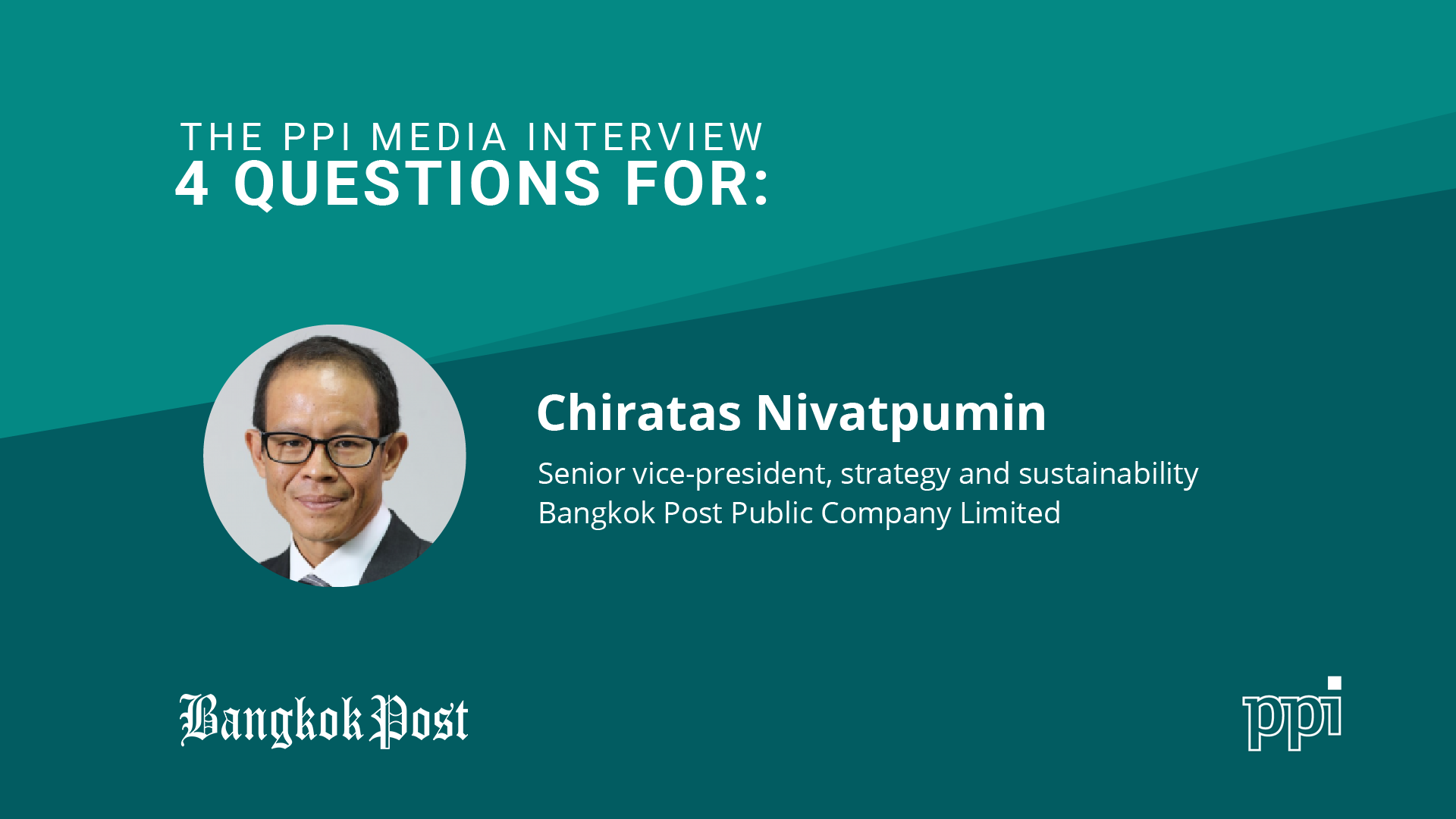We spoke with Chiratas Nivatpumin, senior vice-president strategy and sustainability at the Bangkok Post Public Company Limited, about the future of the newspaper industry in Thailand and the impact of the Corona pandemic (the text has been slightly edited for clarity).
How do you see the future of printed newspapers in Thailand and wordwide?
Speaking only about the Thai market, I am quite pessimistic about the future of newspapers as printed media. I think that Covid has accelerated the transition to digital by at least 3 to 5 years. What the last two years have taught many consumers and companies alike is that the switch to digital media is transformative and it is not going to be reversed. It is not a cyclical downturn but a complete way of change. I don’t believe that printed media is ever going to recover and I think the numbers bear that out. Industry-wide circulation for all newspapers is down at least 40 to 50 % and the economics for publishers simply don’t work anymore – in terms of printing as well as distribution. And another point to consider besides the economics is the sustainability question with regards to print media . It just doesn’t make sense for many consumers to accumulate dead trees in their homes. The awareness that this is not a sustainable industry is growing.
Which digital revenue models are particularly important for journalism in your view?
Well, I was looking at some of the statistics of the latest Reuters Institute report about global media. And I think everyone is in the similar situation where digital advertising remains the primary source of revenue for digital. That being said – I think – most markets, including Thailand, see that digital advertising is a very short-term solution. You know, CPMs continue to decline and competition is very high especially with influencers, micro influencers and pure digital publishers. So I think most publishers are increasingly looking to a reader revenue model – whether it’s paywall or subscription.
What impact has the corona pandemic had on the Bangkok Post and the newspaper industry in Thailand in general?
The coronavirus pandemic has had a massive impact on everyone. You can separate this question into multiple dimensions. I’ll discuss the impact on staff, the impact on my customers and the impact our suppliers and partners: I think I have 17 employees to date who have contracted the coronavirus – and they all have recovered. That being said, there have certainly been casualties among friends, family and colleagues. Very early on in the pandemic we moved to remote workflow and work from home and I think the lesson learned for us as a publisher is that we had to rethink a lot of our workflows that were paper-based and to accelerate new investments in technology to improve our communications and project management. And I think it (corona) has had a beneficial impact in the sense that it made us think much more logically how to organize work. Because remote workflow requires tremendous self discipline, so it has forced us to be more organized in how we work together and collaborate in teams. In terms of our customers: I think comparing the numbers today with pre-covid, our newspaper sales have fallen by 40 percent which is about on par with the industry. Our digital traffic has also increased quite a bit. Our epaper sales, I think, are up about 50 percent. So it’s obvious that there is continued demand for news, it’s just that the demand for the physical paper has decreased. In terms of suppliers: I think with the need to social distance it has become more difficult to organize distribution but it’s probably not as much a problem as some other industries might face.
Overall, what is your most important professional insight after a year and a half of corona?
That’s a very good question. Did the pandemic teach me anything I didn’t already know? Not really. If corona has taught me anything it’s that the first several months of work from home, many staff enjoyed it. You know, you felt safe, you didn’t have to suffer through Bangkok traffic, it’s relatively convenient. But after a certain point of time you miss collaboration. You miss the informal discussions that you have over lunch or coffee that can lead to creativity and ideas and innovation. And to try to capture that creativity in organized Zoom meetings doesn’t really work. You hear a lot about the future of hybrid workplaces and the impact on corporate culture. And I feel that there needs to be more attention on this – at least within my organization – on how we do maintain creativity? At the end of the day newspapers sell ideas and thoughts and creativity is very much a part of that. If you lose that, what are you selling? If you lose that you might as well subscribe to a google AI bot that will write the news stories for you. And I don’t know if ppi sees this, but I thought the other day that traditionally, when we hire new recruits, we have very involved orientation sessions where everyone sits with each of the business units to understand the company’s operations. But today, I have some new staff that I never met physically. I never had the chance to sit down with them for a coffee. So I was wondering: Are we losing something? I think that’s the key lesson to me. It’s not so much about digital strategy or digital transformation and the impact on media. Covid only accelerated the trends. But the hybrid workplace and the new normal is something that I think needs some serious thoughts on how we do keep creativity. It’s so important in an industry such as ours.






